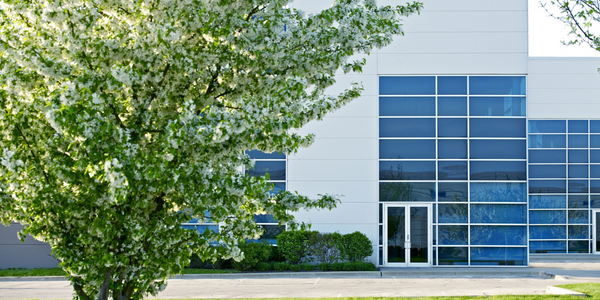Technology Category
- Application Infrastructure & Middleware - Database Management & Storage
- Infrastructure as a Service (IaaS) - Cloud Databases
Applicable Industries
- Cement
- E-Commerce
Applicable Functions
- Procurement
- Product Research & Development
Use Cases
- Building Automation & Control
About The Customer
Futureshop is an online shopping platform that caters to environmentally conscious consumers. It is the internet's largest shopping search engine for sustainably made clothing basics and activewear, with plans to expand into all clothing and beyond. The platform is designed to make it easier for users to find products made with sustainable materials and environmentally friendly methods. Users can browse through a directory, use the advanced product search, and add favorites to their accounts. Some brands also offer coupons. To complete a purchase, users are redirected to the ecommerce site of the product's brand. The vision for Futureshop is to become people's 'first choice' when searching for products to buy, similar to how Amazon is often the first choice for many shoppers.
The Challenge
The founder of Futureshop, Marc Brodeur, faced the challenge of creating an online shopping platform that made it easier for users to find products made with sustainable materials. The goal was to transform the way people shop online, focusing on sustainability and environmentally friendly methods. The challenge was not only to create a platform that could handle a large number of products but also to incorporate sophisticated features such as different data types, filtered searches, an editor back-end portal, and user accounts with favorites. The platform needed to be user-friendly, allowing visitors to easily search for products, browse through a directory, and add favorites to their accounts. Additionally, the platform needed to provide a seamless transition to the ecommerce site of the product's brand for purchase completion.
The Solution
Marc Brodeur chose to build Futureshop on Bubble, a no-code platform. Bubble enabled him to create the sophisticated features he envisioned for the platform without the need for advanced coding. The platform supports different data types, filtered searches, an editor back-end portal, and user accounts with favorites. Futureshop operates as a portal, search engine, and directory. Any web visitor can use the advanced product search or the directory for browsing. Users can add 'favorites' by creating an account, and some brands offer coupons. To complete a purchase, users are redirected to the ecommerce site of the product's brand. The platform has been successful in cataloging over 6000 sustainable products into the database, and plans are underway to expand its social media presence and continue building the database.
Operational Impact
Quantitative Benefit

Case Study missing?
Start adding your own!
Register with your work email and create a new case study profile for your business.
Related Case Studies.

Case Study
System 800xA at Indian Cement Plants
Chettinad Cement recognized that further efficiencies could be achieved in its cement manufacturing process. It looked to investing in comprehensive operational and control technologies to manage and derive productivity and energy efficiency gains from the assets on Line 2, their second plant in India.

Case Study
Digital Transformation of Atlanta Grout & Tile: An IoT Case Study
Atlanta Grout & Tile, a Tile, Stone & Grout restoration company based in Woodstock, Georgia, was facing challenges with its traditional business model. Despite steady growth over the years, the company was falling behind the web revolution and missing out on the opportunity to tap into a new consumer base. They were using independent software from different vendors for each of their department information and workforce management. This resulted in a lot of manual work on excel and the need to export/import data between different systems. This not only increased overhead costs but also slowed down their response to clients. The company also had to prepare numerous reports manually and lacked access to customer trends for effective business decision-making.

Case Study
IFFCO Boosts IT Performance and Innovates Agriculture with Oracle Cloud
Indian Farmers Fertiliser Cooperative Ltd. (IFFCO), the world’s largest manufacturer and marketer of fertilizers in the cooperative sector, was facing several challenges in its quest to innovate and improve the livelihood of farmers in India. The organization had recently launched a new product, nano urea, which brought new demands to IFFCO’s cloud computing needs. The organization needed a reliable cloud vendor to support the processes of 6–7 new manufacturing plants during the upcoming year, enhancing its production capability 300–350 million bottles of nano urea to meet increasing demand. IFFCO’s cloud adoption was driven by a need to innovate. The organization wanted capabilities for a dynamic business that can adapt to the changing needs of the market while growing fast. However, it was inhibited by rigid on-premises data center deployments and the overhead of maintaining legacy systems. IFFCO wanted to apply the elasticity and availability of cloud for improving overall performance of applications at lowest possible operational overhead. Lastly, IFFCO needed to provide the benefits of its technology to all its stakeholders, including employees, members, transporters, and farmers, some of whom have limited literacy. To accommodate all stakeholders, IFFCO wanted to add a voice interface to its applications.

Case Study
Revolutionizing Construction Equipment Rental: A Case Study on ProsRent and ENO8
ProsRent, a startup that won the 'Best Financial Opportunity' and 'Best Pitch' at CodeLaunch 2016, aimed to revolutionize the way construction professionals source and rent heavy equipment. In the construction industry, project managers and contractors typically rent heavy equipment from supply companies. However, predicting inventory can be challenging, and finding the required equipment at the right time and place can be a hassle. If the preferred vendor doesn't have the required equipment, it results in wasted time and money in searching for it, often leading to higher costs due to non-preferred rates and increased delivery costs if the vendor is located far from the job site. Suppliers, on the other hand, desired access to a wider base of trusted renters that they didn't have to vet themselves and wanted to offer dynamic rental pricing based on demand and availability in their market. ProsRent's challenge was to produce a minimum viable product that was fast and first to market but also strong enough to engender loyalty and repeat business from the target market.

Case Study
AI-based Automation for Commercial Office HVAC: A Verdigris Case Study
Modern buildings are required to run longer hours, support a variety of end uses, and contribute to higher levels of economic productivity, leaving a thin margin for error. However, even the most advanced building and environmental control systems have failed to adequately support facilities and operations management. Buildings are often inefficient and the people using them are underserved. To meet occupant comfort and maintain cost and energy efficiency, a dynamic, AI-assisted approach is needed.








